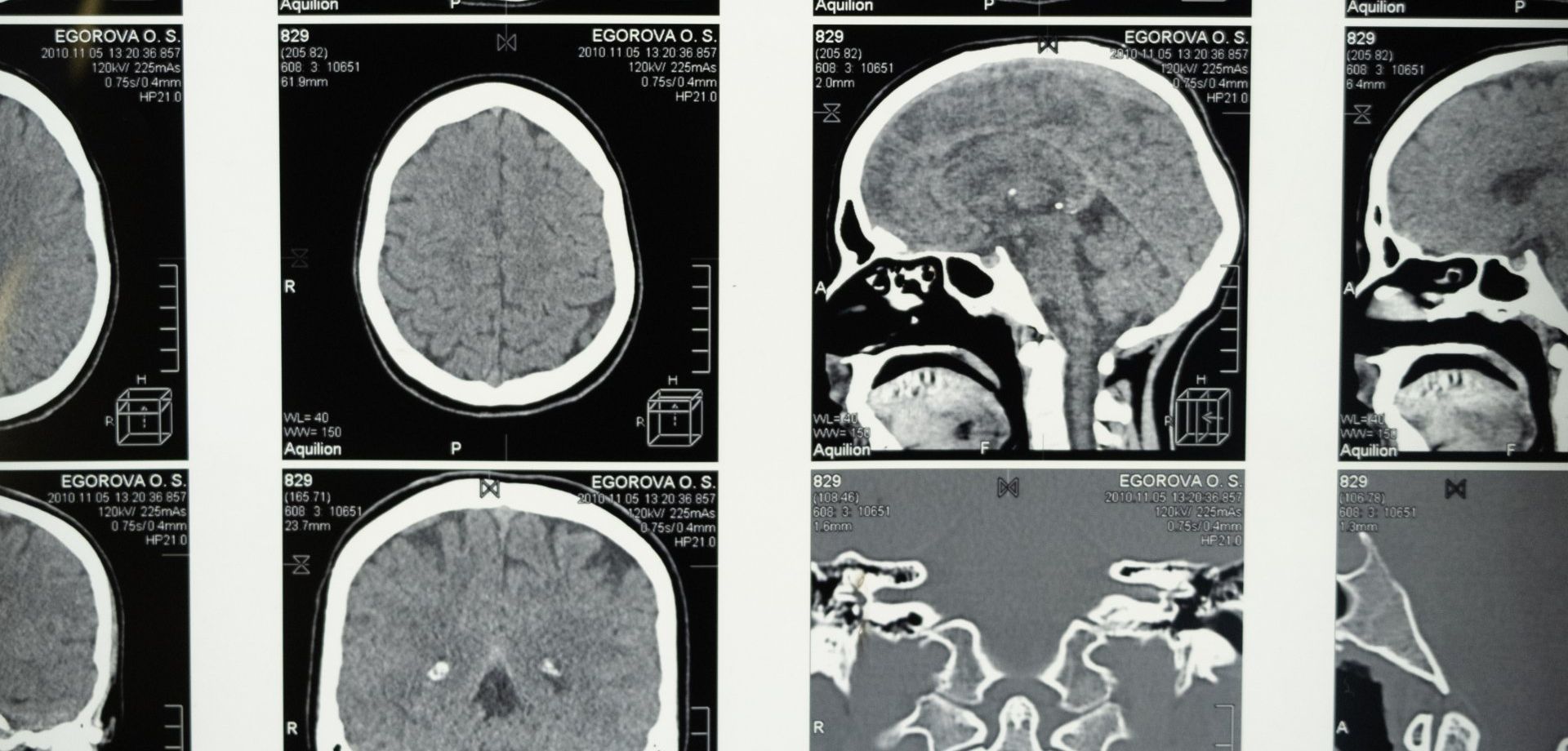Let's talk about your case
You can schedule a call with one of our lawyers anytime. Call today and get the help you need.
Or fill out our online form, and we will respond within 24 hrs.
Understanding Catastrophic Impairment: Test Guide
Catastrophic Impairment: Understanding the Test
Catastrophic injuries can have a devastating impact on an individual's life. These injuries often result in permanent impairment, affecting a person's physical, psychological, and financial well-being. In Ontario, the designation of catastrophic impairment is crucial for accident victims to access the benefits they need. However, understanding what constitutes catastrophic impairment and how it is determined can be a complex process. In this blog, we will explore the definition of catastrophic impairment in Ontario, the criteria for designation, including severe impairment of ambulatory mobility or use of an arm, common causes of catastrophic injuries, and the legal and medical perspectives involved in assessing and compensating for catastrophic impairment. By gaining a better understanding of catastrophic impairment and the use of an arm, you can navigate the challenges of a catastrophic injury more effectively.
Defining Catastrophic Impairment in Ontario
Catastrophic impairment is a legal definition used in personal injury law to describe severe injuries that result in permanent impairment. In Ontario, the statutory accident benefits schedule outlines the criteria for determining catastrophic impairment designation. This designation is significant as it entitles injured persons to enhanced accident benefits. Catastrophic impairment lawyers specialize in helping accident victims understand their rights and pursue the benefits they are entitled to. By working with a catastrophic impairment lawyer, individuals can navigate the legal system and ensure they receive the compensation and care they need.

The Legal and Medical Perspective
From a legal perspective, catastrophic impairment is defined by the statutory accident benefits schedule. This schedule outlines specific criteria that must be met for a person to be designated as catastrophically impaired, including physical or psychological impairments that result in a 55% or greater whole person impairment, or a combination of physical and psychological impairments that result in a 55% or greater whole person impairment. This designation is crucial for car accident victims as it allows them to receive the higher amount of accident benefits available to catastrophically impaired individuals. The determination of catastrophic impairment is a complex process, and both legal and medical professionals play a crucial role in evaluating permanent impairment and advocating for car accident victims.
Medical professionals also play a significant role in the assessment of catastrophic impairment. They evaluate the physical, psychological, and behavioral impairments of individuals to determine the extent of their permanent impairment. Medical professionals use specialized evaluation methods, such as those outlined by the American Medical Association, to assess an individual's impairment. Their expertise is essential in accurately diagnosing and documenting the nature and severity of injuries, which is crucial in determining catastrophic impairment designation.
Ontario law recognizes the devastating impact of catastrophic injuries on an individual's life. Therefore, it allows for enhanced accident benefits for those who have been designated as catastrophically impaired. These benefits aim to provide financial assistance for medical care, rehabilitation, and income loss. By understanding the legal and medical perspectives of catastrophic impairment, accident victims can better navigate the evaluation process and seek the benefits they are entitled to under Ontario law.
Criteria for Catastrophic Impairment Designation
The designation of a catastrophic injury is based on specific criteria set out by the statutory accident benefits schedule. These criteria include:
- A physical or psychological impairment that results in a 55% or greater whole person impairment, or a combination of impairments that result in a 55% or greater whole person impairment.
- Impairments must be permanent, meaning they are not expected to improve with medical treatment.
- Impairments must significantly impact a person's daily activities and independence.
- To determine impairment, medical professionals use evaluation methods outlined by the American Medical Association (AMA). The AMA guides provide a framework for assessing whole person impairment, considering physical, psychological, and behavioral impairments.
- In addition to physical and psychological impairments, certain behavioral disorders may also contribute to catastrophic impairment designation. Examples of behavioral disorders that may be considered include cognitive impairments, personality disorders, and psychological disorders. These disorders must be documented and assessed by qualified medical professionals to be considered for catastrophic impairment designation.
- It is essential to understand the criteria for catastrophic impairment designation, as it is the gateway to enhanced accident benefits for accident victims. By meeting these criteria, individuals can access the financial support necessary to cover medical expenses, rehabilitation, and income loss resulting from their catastrophic injuries.
Causes Leading to Catastrophic Injuries
Catastrophic injuries can arise from a variety of causes, but motor vehicle accidents are among the most common incidents leading to catastrophic impairment. These accidents can result in serious injuries that have a lasting impact on an individual's health and well-being, including head injuries. Other common causes of catastrophic injuries include accidents in the workplace, sports-related incidents, and falls from heights. Understanding the causes of catastrophic injuries can help individuals take preventive measures and seek legal recourse when negligence is involved.

Common Incidents and Accidents
Car accidents are a leading cause of catastrophic injuries. These accidents often result in severe head or brain injuries, which can lead to permanent impairment. Brain injuries, such as traumatic brain injuries, can result in cognitive, physical, and emotional impairments that significantly impact a person's daily functioning.
Spinal injuries are another common consequence of catastrophic incidents, such as car accidents, falls, or workplace accidents. Spinal injuries can cause paralysis or loss of motor function, resulting in a catastrophic impairment designation.
Motorcycle accidents, pedestrian accidents, and public transportation accidents can also result in catastrophic injuries. The high-speed nature of these incidents, combined with the lack of physical protection, increases the likelihood of severe injuries.
Understanding the most common causes of catastrophic injuries is important for accident prevention and seeking legal action when negligence is involved. If you or a loved one has experienced a catastrophic injury, it is crucial to consult with a personal injury lawyer experienced in catastrophic impairment cases. They can help assess your case, determine fault, and pursue the compensation you deserve.
Role of Negligence in Catastrophic Injuries
Negligence is a significant factor in catastrophic injuries. When an individual or entity fails to uphold their duty of care and their actions result in severe injuries, they can be held responsible for the damages caused. Negligence pertains to situations where someone has breached their legal duty of care, causing harm to another person.
In catastrophic injury cases, proving negligence is crucial for victims seeking compensation for their injuries. Personal injury lawyers play a crucial role in these cases, helping victims gather evidence, assess liability, and pursue a tort action. A tort action is a legal remedy that allows victims to seek compensation for their injuries, damages, and losses resulting from the negligent party's actions.
If you or a loved one has experienced a catastrophic injury due to someone else's negligence, it is essential to consult with an experienced personal injury lawyer. They can help evaluate your case, guide you through the legal process, and ensure you receive the compensation you deserve to cope with the physical, emotional, and financial impact of catastrophic impairment.
Understanding the Catastrophic Impairment Test
The determination of catastrophic impairment is a complex process that involves the evaluation of an individual's permanent impairment. Medical professionals, insurance providers, and legal professionals use a variety of criteria, evaluation methods, and legal standards to determine whether an individual is catastrophically impaired. Understanding this evaluation process is crucial for accident victims seeking catastrophic impairment designation and access to enhanced accident benefits. By familiarizing yourself with the criteria and evaluation methods used, you can better advocate for the benefits you deserve.
Evaluation and Assessment Procedure
The evaluation and assessment procedure for catastrophic impairment involves the expertise of medical professionals. They examine various aspects of an individual's health, including physical, psychological, and behavioral impairment.
Medical professionals specializing in the evaluation of permanent impairment use a combination of objective medical evidence, clinical assessments, and diagnostic tests to determine the extent of impairment. Their evaluation takes into account factors such as range of motion, strength, sensory loss, cognitive function, psychological well-being, and overall functional capacity.
Physical impairment, including spinal injuries or loss of limb function, is a significant consideration in the evaluation of catastrophic impairment. Behavioral impairments, such as cognitive or psychological disorders, are also taken into account. These impairments are thoroughly assessed to determine their impact on an individual's ability to perform daily activities, engage in work or leisure activities, and maintain independence. This includes evaluating any potential behavioural disorders, such as PTSD, psychotic disorders, or depression, and their effects on an individual's functioning and independence.
Brain impairment is another significant factor when assessing catastrophic impairment. Traumatic brain injuries, for example, can result in a wide range of physical, cognitive, and emotional impairments. These impairments can significantly affect an individual's quality of life and their ability to function independently.
Overall, the evaluation procedure for catastrophic impairment involves a comprehensive assessment of an individual's physical, psychological, and behavioral impairments by qualified medical professionals. Their expertise is essential in accurately diagnosing and documenting the nature and extent of an individual's injuries, ultimately influencing the designation of catastrophic impairment.

Impact of Changes in Ontario Law
Changes in Ontario law have a significant impact on the determination of catastrophic impairment. Recent changes, including the minor injury guideline, have raised concerns among accident victims and their legal representatives.
Ontario law governs the accident benefits available to injured individuals, including those who are catastrophically impaired. These benefits cover medical expenses, rehabilitation, attendant care, and income loss, depending on the severity of the impairment.
The minor injury guideline is a recent change that has introduced a cap on benefits for certain injuries classified as minor. This guideline has raised concerns as some accident victims may be unfairly categorized as having minor injuries, potentially limiting their access to enhanced accident benefits.
It is crucial to stay informed about changes in Ontario law, especially those affecting catastrophic impairment designation. Consulting with a personal injury lawyer experienced in catastrophic impairment cases can help you navigate any legal challenges and ensure you receive the benefits you are entitled to under current legislation.

Compensation for Catastrophic Impairments
When an individual is designated as catastrophically impaired, they may be entitled to enhanced accident benefits. These benefits are designed to provide financial assistance for medical care, rehabilitation benefits, attendant care, and income loss resulting from the catastrophic injury. Accident benefits are typically provided by insurance companies as part of an individual's insurance policy. However, insurance companies often dispute catastrophic impairment designation claims, making it essential to seek legal guidance to ensure fair compensation and access to necessary care.
Role of Insurance and Accident Benefits
Statutory accident benefits, provided by insurance companies, play a crucial role in providing financial support for accident victims, including those who are catastrophically impaired. These benefits, outlined in Ontario law, aim to compensate accident victims for medical care, rehabilitation, attendant care, and income loss resulting from the catastrophic injury. The determination of catastrophic impairment also plays a crucial role in determining how much money will be available to an individual after being injured in an incident.
For accident victims, the designation of catastrophic impairment is significant as it determines the level of accident benefits they are entitled to receive. Catastrophic impairment designation often results in higher benefits, reflecting the increased medical needs and financial challenges associated with catastrophic injuries.
Income loss benefits are an essential component of accident benefits, especially for catastrophically impaired individuals who may be unable to work or face limitations in their ability to earn income. These benefits aim to provide financial support to cover a portion of the income loss resulting from the catastrophic injury.
Attendant care benefits are also available to catastrophically impaired individuals, providing compensation for the cost of care provided by a professional or family member. This care is often necessary to assist with activities of daily living, personal care, and rehabilitation.
Navigating the insurance system and ensuring fair compensation for catastrophic impairment can be challenging. Seeking legal guidance from a personal injury lawyer experienced in catastrophic impairment cases is crucial to advocating for your rights and accessing the benefits you need to support your recovery.
Considering Tort Action Against the Negligent Party
In addition to accident benefits, victims of catastrophic injuries may consider pursuing a tort action against the negligent party responsible for their injuries. The tort system allows victims to seek compensation for not only medical expenses and income loss but also pain and suffering, loss of enjoyment of life, and other damages resulting from the accident.
Pursuing a tort action involves proving the negligent driver or party's fault in causing the injuries. This often requires a thorough investigation, collection of evidence, and expert testimony. Personal injury lawyers experienced in catastrophic impairment cases can guide victims through the process, ensuring their legal rights are protected, and a fair settlement is achieved.
Victims of catastrophic injuries may also receive damages for future medical care, rehabilitation, and ongoing support services. These damages are awarded based on an evaluation of the individual's expected future medical needs, rehabilitation costs, income loss, and the impact of the catastrophic impairment on their daily activities and quality of life. Considering tort action against the negligent party is crucial in seeking justice for the injured person and their family members who are greatly impacted by the lasting effects of the injury.
It is important to work with an experienced personal injury lawyer who can assess your case, built a strong legal strategy, and negotiate with insurance companies or represent you in court. They can maximize your chances of receiving fair compensation for your catastrophic impairment, helping you on your journey towards recovery.
Dealing with Practical Difficulties in Catastrophic Impairment Cases
Catastrophic injuries can present numerous practical challenges that require specialized support from professionals experienced in handling such cases. Catastrophic injury lawyers understand the complexities involved in catastrophic impairment cases and can provide the necessary legal guidance and representation throughout the process.
Insurance providers may present challenges or disputes when it comes to catastrophic impairment designation and accessing benefits. In these situations, having a catastrophic injury lawyer by your side ensures your rights are protected, and you have an advocate who can negotiate on your behalf.
Case managers also play a crucial role in catastrophic impairment cases. They coordinate medical care, rehabilitation, and other support services to help individuals recover, adapt, and regain a sense of normalcy in their lives. Choosing the right case manager is essential, as they will be a central figure in your journey towards physical, emotional, and financial recovery.
Amount at Stake and Insurer Examinations
In catastrophic impairment cases, a significant amount of money is at stake due to the scale of damages victims may experience. Catastrophically impaired individuals may require extensive medical care, rehabilitation, attendant care, and ongoing support services, resulting in substantial financial needs.
Insurer examinations play a pivotal role in determining the extent of catastrophic injuries and the potential heads of damages victims may be entitled to. These examinations, conducted by insurance companies, assess an individual's impairment, future cost of care, income loss, and overall financial position.
The financial position of catastrophically impaired individuals is a significant consideration in determining the benefits and compensation they may receive. Insurance companies evaluate a variety of factors, such as income loss, future medical expenses, and the impact of the catastrophic injury on daily activities, to assess an individual's financial needs.
Maximizing the benefits and compensation received is essential to ensure catastrophically impaired individuals can cover the costs associated with their injuries and maintain their quality of life. Working with a catastrophic injury lawyer experienced in dealing with insurance companies and insurer examinations can significantly increase the chances of receiving a fair settlement and securing the financial resources needed for a successful recovery.
Importance of Choosing the Right Case Manager
Choosing the right case manager is crucial for individuals with catastrophic impairment. A case manager is a professional who coordinates medical care, rehabilitation, and support services to help individuals regain their independence, functionality, and quality of life.
Case managers work closely with health professionals, including doctors, specialists, therapists, and rehabilitation experts, to develop and implement individualized care plans tailored to the unique needs of those with catastrophic injuries. This multidisciplinary approach ensures that all aspects of an individual's physical, psychological, and social well-being are addressed.
The right case manager will act as a liaison between health professionals, the injured individual, and their family. They will advocate for the individual's needs, facilitate communication, and ensure that medical care and rehabilitation services are delivered effectively and efficiently.
When choosing a case manager, it is important to consider their experience and expertise in catastrophic impairment cases. They should have a thorough understanding of the challenges faced by catastrophically impaired individuals and a network of resources to provide comprehensive care.
Family physicians can also play a vital role in the care of catastrophically impaired individuals. They serve as a primary point of contact and can coordinate care, manage medications, and address any general health concerns. Regular communication with the family physician is essential to ensure a holistic approach to the individual's health and well-being.
How does Catastrophic Impairment Affect the Victim's Life?
Catastrophic impairment has a profound impact on a victim's life, affecting multiple areas of function, personal relationships, and overall well-being. The consequences of catastrophic impairment extend beyond physical limitations, reaching into emotional, psychological, financial, and social aspects of an individual's life.
The quality of life of catastrophically impaired individuals is significantly impacted, as they face challenges in performing activities of daily living, engaging in social interactions, and pursuing personal goals and aspirations. Family members often assume the role of caregivers, providing physical and emotional support, which can strain family dynamics and relationships.
Daily activities that were once routine may become challenging or impossible due to physical or cognitive limitations. The loss of independence and the need for assistance can be emotionally distressing, leading to a sense of frustration, isolation, or even depression.
The financial impact of catastrophic impairment is also significant. Medical expenses, ongoing care, rehabilitation, and income loss can place a significant burden on individuals and their families. Financial strain may limit access to necessary care, rehabilitation, or even basic needs, further exacerbating the physical and psychological challenges faced by catastrophically impaired individuals.
Understanding and addressing the impact of catastrophic impairment is essential for providing comprehensive care and support. By recognizing the far-reaching consequences, victims, family members, and professionals can work together to develop strategies for coping, rehabilitation, and maximizing the individual's quality of life.
Physical, Emotional, and Financial Impact
Catastrophic impairment has a significant physical, emotional, and financial impact on individuals and their families. The specific consequences vary depending on the nature and severity of the impairment, but common effects include:
- Loss of vision or hearing, resulting in a significant impairment of sensory function.
- Behavioral impairments, such as cognitive or psychological disorders, that can alter personality, memory, or decision-making capabilities.
- Loss of mobility or functionality, affecting an individual's ability to perform activities of daily living, work, or engage in recreational activities.
- Chronic pain or discomfort, which can significantly impact an individual's overall well-being and quality of life.
- These physical impairments often result in emotional and psychological challenges. Catastrophically impaired individuals may experience feelings of depression, anxiety, or a loss of identity. They may struggle with the loss of independence and the need for assistance with daily activities.
- Financially, catastrophic impairment can have a substantial impact. Medical expenses, ongoing care, rehabilitation, and income loss can place significant financial strain on individuals and their families. Catastrophically impaired individuals may face challenges in maintaining employment or finding suitable employment, leading to a loss of income and financial stability.
- Understanding and addressing the physical, emotional, and financial impact of catastrophic impairment is crucial for providing comprehensive care and support. Accessing the necessary medical treatments, rehabilitation services, and financial assistance is essential in promoting recovery, maximizing function, and improving the individual's overall quality of life.
What are the options if the victim disagrees with the Insurer's Assessment?
If a victim disagrees with an insurer's assessment of catastrophic impairment, there are options available to challenge the decision and seek a fair evaluation. These options include:
- Request a review by the insurer: The first step is to request a review of the assessment from the insurance company. This involves submitting additional medical evidence or challenging the basis of the insurer's decision.
- Independent medical examination: If the victim still disagrees with the insurer's assessment, they can request an independent medical examination. This involves obtaining a medical opinion from a qualified healthcare provider who is not affiliated with the insurance company.
- Appeal to the License Appeal Tribunal (LAT): If the victim is not satisfied with the outcome of the review or independent medical examination, they have the option to appeal to the LAT, an administrative tribunal that resolves disputes related to statutory accident benefits. The LAT will review the case and make a binding decision.
- When disputing an insurer's assessment, it is crucial to seek legal advice from a personal injury lawyer experienced in catastrophic impairment cases. They can provide guidance, represent your interests, and advocate for a fair evaluation of your injuries. Many personal injury lawyers offer free consultations, allowing you to discuss your case and explore your legal options without financial obligation.
- Navigating the insurance system and disputing an insurer's assessment can be complex, but with the right legal representation, victims of catastrophic impairment can protect their rights, access the benefits they need, and receive fair compensation for their injuries.
WVGB Law Group | Catastrophic Impairment Lawyer
In conclusion, understanding the catastrophic impairment test is crucial for individuals seeking compensation for their injuries. Ontario law has specific criteria for determining catastrophic impairment, and it is essential to navigate the evaluation and assessment procedure accurately. Catastrophic injuries can have a significant impact on a person's life, including physical, emotional, and financial consequences. It is important to consider all available options, including insurance and accident benefits, as well as possible tort action against the negligent party. Dealing with practical difficulties in these cases, such as insurer examinations and choosing the right case manager, can greatly impact the outcome. If a victim disagrees with the insurer's assessment, there are avenues for recourse and further evaluation. Overall, understanding the test and seeking proper support is crucial for individuals dealing with catastrophic impairments.
Resources:
Let's talk about your case
You can schedule a call with one of our lawyers anytime. Call today and get the help you need.
Or fill out our online form, and we will respond within 24 hrs.
Thank you for contacting us.
We will get back to you as soon as possible. You can also book using this link: Personal Injury Booking Page
Please try again later
Related Blog Posts
Practice Areas
QUICK LINKS
CONTACT US
Tel: (613) 505- 5025
Fax: (613) 234-5852
info@wvgblaw.com
200-2571 Carling Avenue
Ottawa, Ontario
K2B 7H7
SERVICES
RECENT BLOG POSTS














